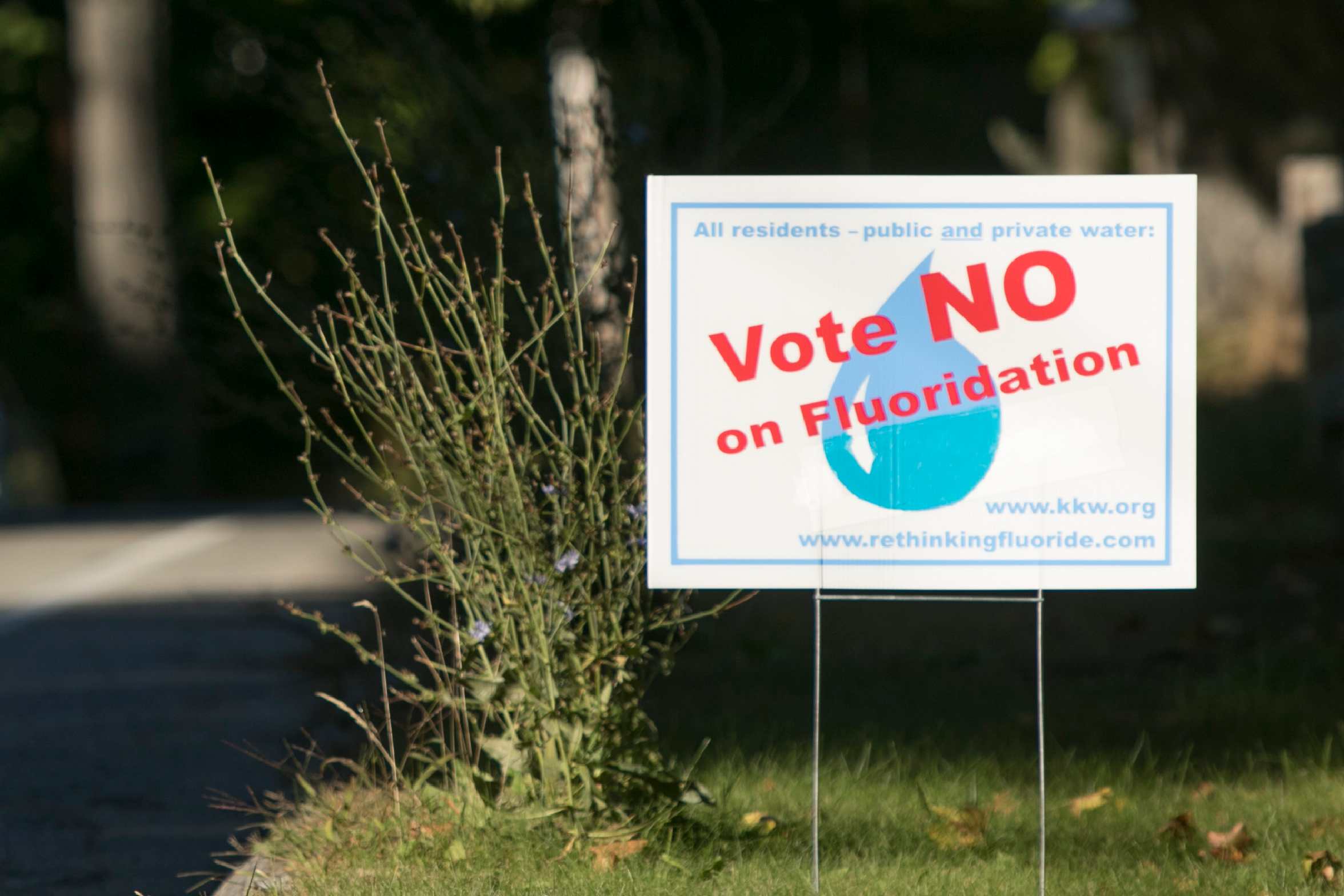…
It is a scenario playing out nationwide. From Oregon to Pennsylvania, hundreds of communities have in recent years either stopped adding fluoride to their water supplies or voted to prevent its addition. Supporters of such bans argue that people should be given the freedom of choice. The broad availability of over-the-counter dental products containing the mineral makes it no longer necessary to add to public water supplies, they say. The Centers for Disease Control and Prevention says that while store-bought products reduce tooth decay, the greatest protection comes when they are used in combination with water fluoridation.
The outcome of an ongoing federal case in California could force the Environmental Protection Agency to create a rule regulating or banning the use of fluoride in drinking water nationwide. In the meantime, the trend is raising alarm bells for public health researchers who worry that, much like vaccines, fluoride may have become a victim of its own success.
The CDC maintains that community water fluoridation is not only safe and effective but also yields significant cost savings in dental treatment. Public health officials say removing fluoride could be particularly harmful to low-income families — for whom drinking water may be the only source of preventive dental care.
“If you have to go out and get care on your own, it’s a whole different ballgame,” said Myron Allukian Jr., a dentist and past president of the American Public Health Association. Millions of people have lived with fluoridated water for years, “and we’ve had no major health problems,” he said. “It’s much easier to prevent a disease than to treat it.”
According to the anti-fluoride group Fluoride Action Network, since 2010, over 240 communities around the world have removed fluoride from their drinking water or decided not to add it.



I’m all for continued study on fluoride’s effects, but I’m not totally convinced on all these points.
It seems like most studies showing negative IQ effects are attributed to naturally high concentrations of fluoride in drinking water, or elevated levels due to nearby coal burning. It’s certainly significant to know that there are toxic levels of fluoride, but recommended levels have been adjusted to be about half of that (though the exact threshold of toxicity is fuzzy).
So yes, we need to be careful about the amount of fluoride in our water, but removing it completely (excepting natural presence) may be throwing the baby out with the fluoridated bath water, as it were.
The main reason I’m against removing it completely is because it’s not clear that it isn’t helping prevent tooth decay, especially for those who don’t have the means to get directly applied fluoride (i.e. Toothpaste and dentist applied coatings) and wouldn’t have the means to add fluoride to their water on an individual basis.
The best available scientific information is that it does help, and it’s the most cost effective way of doing so
“The authors conclude that available evidence suggests that fluoride has a potential to cause major adverse human health problems, while having only a modest dental caries prevention effect”: https://www.ncbi.nlm.nih.gov/pmc/articles/PMC3956646/
^ I think this logic needs to be reversed - the burden of proof must be abundantly clear with few to no risks before it should be considered. The paper above also highlights interesting aspects about the initial test which spurred water fluoridation in the US. This was also a time in which broad public awareness of dental hygiene was first entering mainstream - was the causality due to amended tap water, or more tooth-brushing?
There’s a reason most of Europe (and most of the world) doesn’t fluoridate their water, and their teeth are statistically healthier than the USA & Australia, where most tap water is fluoridated.
In my opinion the water fluoridation debate has become associated with nut-job conspiracy theorists and the “don’t tread on me” crowd. There are legitimate concerns, and the debate has been ongoing prior to Roswell, etc. There are literal conspiracies diluted in public perception/sentiment by wacky theoretical conspiracies and the types who espouse them.
That’s the thing, the proof has been that fluoridated water helps teeth. The data is old, yes, but that doesn’t necessarily mean it’s incorrect. As for European countries, at least according to Wikipedia, not many of them artificially fluoridate their water, but some of them have naturally high levels of fluoride in their water and some others provide fluoride via salt or milk.
Here’s a study that compares oral health and cognitive decline across varying levels of water fluoridation (natural or artificial) in Sweden. The data finds positive oral health outcomes and no significant impairment associated with higher fluoride levels. Obviously this directly contradicts your linked study, so what are we to believe? I think the only conclusion we can really come to is that more research needs to be done.
It’s also not surprising that tooth health has generally improved with the rising availability of toothpaste and other dental care, but I think what remains to be seen is, are we at the point where we no longer need fluoridated water, or would our tooth health overall decline without it, particularly among vulnerable populations? Particularly in countries like the US where oral healthcare is often prohibitively expensive and not usually covered by general health insurance, is it wise to cut off the small amount of freely available dental help we have before finding a suitable alternative?